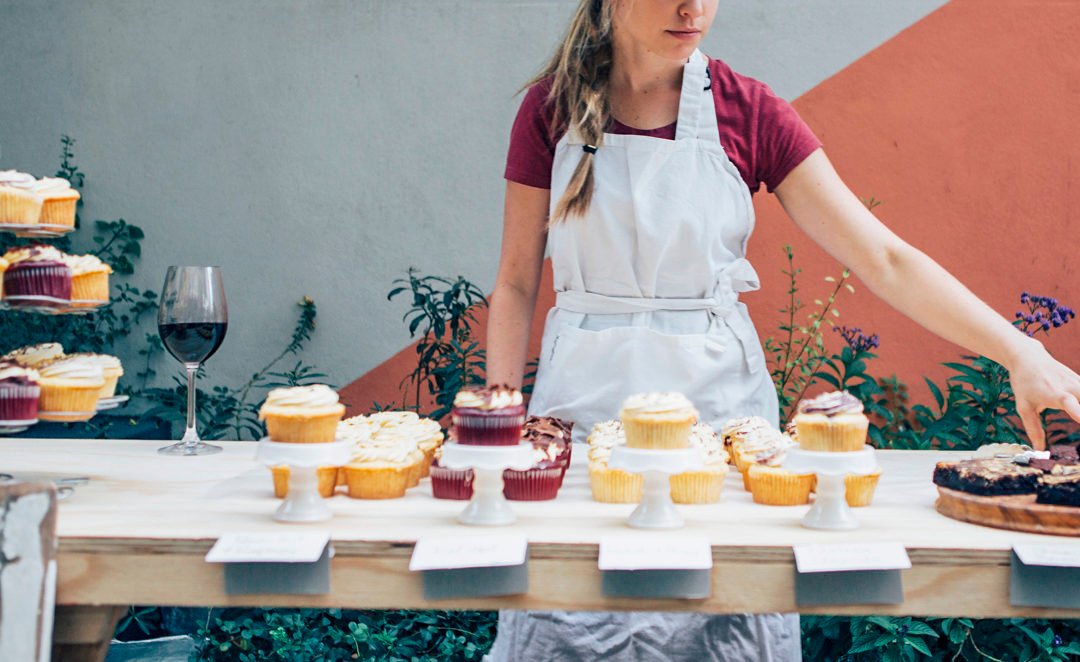Baking is not just a hobby; it’s a passion that can turn into a profitable home-based business. If you’ve always dreamed of sharing your baking skills with others, starting your own baking workshop at home might be the perfect way to turn that passion into a career. Here’s a step-by-step guide on how to start your own baking workshop at home, from setting up the space to marketing your services and building a loyal customer base.
Step 1: Perfect Your Baking Skills
Before you start teaching others, make sure you have mastered the techniques and recipes you want to offer in your workshops. It’s important to have a deep understanding of different baking methods, from cakes and cookies to breads and pastries.
- Experiment with New Recipes: Develop a variety of baked goods that showcase your skills. This will help attract different types of customers who might want to learn how to make various treats.
- Perfect Your Presentation: Learn how to decorate and present your baked goods beautifully. This is key for making your workshops attractive to potential clients.
Step 2: Set Up Your Home Workshop Space
The space where you conduct your baking workshop should be functional and comfortable. You don’t need a huge kitchen to start, but it’s important to have enough room for baking equipment, ingredients, and your students.
- Choose a Clean and Spacious Area: Ideally, this should be a well-ventilated area with plenty of natural light. A large kitchen or a dining room with space for workstations would be perfect.
- Equip the Space: Ensure you have the necessary equipment, such as mixers, ovens, cooling racks, measuring tools, baking pans, and utensils. If you plan to teach specific baking techniques like cake decorating, make sure you have the tools for that as well.
- Safety First: Make sure your space is safe for students. Install proper lighting, ensure there are no tripping hazards, and have a fire extinguisher handy just in case.
Step 3: Plan Your Courses and Curriculum
Now that your space is ready, it’s time to create a curriculum for your baking workshops. Think about the type of audience you want to attract—beginners, intermediate bakers, or advanced pastry chefs—and tailor your classes accordingly.
- Create a Course Outline: Develop clear learning objectives for each session, including step-by-step instructions and tips. For example, if you’re teaching a cookie-making class, cover everything from measuring ingredients to decorating the cookies.
- Decide on the Duration: Classes can range from a few hours for a single session to several weeks for more comprehensive courses. You could also offer one-off workshops or weekly classes.

- Offer a Variety of Topics: To attract a broader audience, consider offering different types of workshops, such as cake decoration, bread baking, or gluten-free baking.
Step 4: Get Necessary Permits and Legal Requirements
Before you start offering baking classes, check with your local authorities to ensure you meet the required legal and health regulations. Many regions require home businesses, especially food-related ones, to have permits and licenses.
- Health and Safety Regulations: Make sure you follow local food safety guidelines, which may include ensuring proper sanitation, hygiene, and food storage procedures.
- Business Licenses: Depending on where you live, you may need a business license to operate your home-based baking workshop legally.
- Insurance: It’s a good idea to get business insurance to cover accidents or liabilities related to your baking workshops.
Step 5: Market Your Baking Workshop
Once everything is set up, it’s time to market your baking workshop and attract students. There are several ways you can promote your classes to get your first customers.
- Create a Website or Social Media Profile: Establish an online presence with a professional website or active social media accounts on platforms like Instagram, Facebook, or Pinterest. Showcase your baking skills, share photos from past workshops, and promote upcoming classes.
- Offer Special Deals: To get the word out, offer special promotions or discounts for your first few workshops or for referring friends. You could also run a “first class free” offer to encourage people to try your services.
- Word of Mouth: Ask past students for testimonials or reviews. Positive word-of-mouth marketing can go a long way in attracting new clients.
- Local Listings: Use local community boards or event websites to advertise your classes. You could also partner with local businesses like cafes or shops to spread the word about your workshops.
Step 6: Build a Strong Customer Base
As you begin hosting baking workshops, focus on creating a welcoming, professional environment for your students. Happy customers are more likely to return and recommend your classes to others.
- Offer Ongoing Classes: Once you’ve hosted a few workshops, consider offering a series of classes or advanced courses to keep students coming back for more.
- Create a Loyalty Program: Reward repeat students with discounts or freebies after a certain number of classes. This helps build customer loyalty and encourages people to keep coming back.
- Engage with Students: Make your workshops interactive and fun. Get to know your students and listen to their feedback to continually improve your classes.
Step 7: Expand Your Workshop Offerings
Once your baking workshop is established, think about expanding your offerings. There are many ways to diversify your business:
- Online Classes: If you want to reach a larger audience, consider offering virtual baking classes via platforms like Zoom or YouTube. You can host live sessions or create pre-recorded courses for people to purchase.
- Private Lessons or Group Parties: Offer private one-on-one lessons or group workshops for birthdays, bridal showers, or corporate events. These can be a great way to diversify your income.
- Sell Baked Goods: If you have the necessary permits, you can also sell your baked goods to workshop participants or locally through farmers’ markets, online platforms, or local stores.
Conclusion
Starting a baking workshop at home can be an exciting and profitable venture. By creating a well-thought-out curriculum, setting up your space, and marketing your classes effectively, you can turn your passion for baking into a rewarding business. Stay organized, continue learning, and most importantly, enjoy the process of sharing your baking knowledge with others!
Are you ready to start your own baking workshop? Let us know in the comments


**mind vault**
mind vault is a premium cognitive support formula created for adults 45+. It’s thoughtfully designed to help maintain clear thinking
I don’t think the title of your article matches the content lol. Just kidding, mainly because I had some doubts after reading the article. https://www.binance.info/hu/register?ref=IQY5TET4
Had no issues logging into 222winlogin.info. The whole registration and login process was surprisingly easy. That’s always a good start, right? Makes things less of a hassle. Try logging in yourself: 222winlogin
One88sbs, heard you were the place to be! Looking for a solid platform with quick payouts. Hopefully, you don’t disappoint! Trying my luck with one88sbs tonight!
Your article helped me a lot, is there any more related content? Thanks!
Looking for some new games and found gamespk. Lots of options to choose from, pretty good resource. Have a look: gamespk
Alright, so I gave th777newlink a whirl. Honestly, it’s not bad. The games are responsive, and I didn’t experience any lag. The graphics could be a little better, but overall, it’s a decent place to kill some time and maybe win a few bucks. Worth a shot, if you’re bored.
Mgamebet07… never heard of ’em! But hey, gotta stay open-minded, right? Could be a hidden gem. I’ll have a peek, report back if I find anything worthwhile. mgamebet07
Word up! 747livelogin is the bomb for live action. I dig the live casino experience. Seamless login process too. Recommend checking it out if you’re into live games! 747livelogin
Hey! 3rrcom is the site. Let’s see what it offers. I have high hopes because I haven’t been disappointed to date Let’s see with this! This is the link: 3rrcom
Your point of view caught my eye and was very interesting. Thanks. I have a question for you.
Thanks for sharing. I read many of your blog posts, cool, your blog is very good. https://www.binance.info/fr-AF/register?ref=JHQQKNKN
Thanks for sharing. I read many of your blog posts, cool, your blog is very good. https://accounts.binance.com/en/register-person?ref=JHQQKNKN